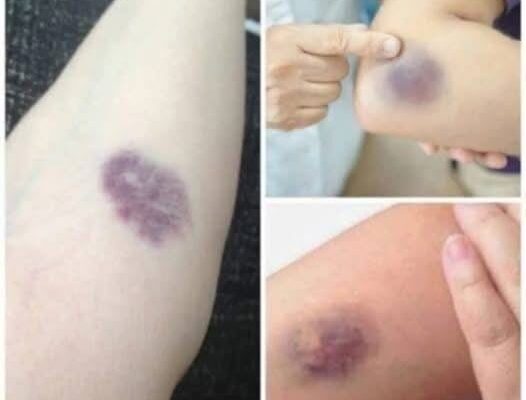Ever Notice You Bruise Easily? Here’s What It Could Mean
You know the ones—those annoying black-and-blue marks that pop up unexpectedly. They look unpleasant, sometimes even painful, and as they fade to yellow, they’re still far from attractive. But beyond the unsightly appearance, frequent or unexplained bruising could be your body’s way of signaling an underlying health issue—and sometimes, it might be serious.
In today’s blog, we’ll explore why bruises happen, what your bruises might be telling you, and simple tips to help prevent them in the future. Whether you’re just curious or concerned, understanding bruises could make a big difference in your health.
What Exactly Is a Bruise?
Medically known as ecchymosis, a bruise happens when tiny blood vessels under your skin break and leak blood, creating that familiar dark mark. Unlike a cut, where blood escapes outside the skin, bruises trap blood beneath the surface.
Usually, bruises appear after an injury—even a minor bump you might forget about, like hitting a coffee table, walking into a door, or even sleeping in an awkward position. The colors of a bruise change over time—from red or purple to green, yellow, and brown—as your body reabsorbs the blood and heals.
When to Pay Attention
Most bruises on your arms or legs are nothing to worry about. But bruises appearing on unusual places—like your stomach, genitals, ears, or back of your hands—or bruises that show up often, don’t heal, or last more than two weeks deserve a doctor’s attention.
Could a Vitamin Deficiency Be Behind Your Bruises?
Here’s a hint: bruising could be linked to what you aren’t getting enough of. Vitamin deficiencies, especially of Vitamin C, Vitamin K, and Vitamin D, can make your blood vessels fragile or slow down clotting, leading to easier bruising.
- Vitamin C: Essential for collagen, the protein that keeps blood vessels strong. Without enough Vitamin C, your vessels weaken, making bruising more likely.
- Vitamin K: Important for blood clotting and strengthening capillary walls.
- Vitamin D & B Vitamins: Deficiencies here can also contribute to bruising.
Certain supplements like ginkgo, garlic, ginseng, and even fish oil can thin your blood naturally—helpful sometimes, but they might also increase bruising risk.
Other Causes to Consider
- Medications: Blood thinners, aspirin, ibuprofen, steroids, and some antibiotics or antidepressants can increase bruising.
- Aging: As skin thins and blood vessels weaken, bruising becomes more common.
- Sun Damage: Years in the sun can weaken vessel walls.
- Medical Conditions: Diabetes, blood diseases (like hemophilia or leukemia), and anemia can all cause frequent bruising.
- Sports Injuries: Muscle contusions from impacts are a common cause.
What Can You Do?
If you get a bruise, try RICE: Rest, Ice, Compression, and Elevation. After a few days, gently warming the area can help. Use pain relief like acetaminophen—but avoid aspirin or ibuprofen if they might worsen bruising.
To prevent falls and bumps at home, keep lighting bright, clear clutter, and secure cords and rugs.
If supplements might be the cause, talk with your doctor about testing your vitamin levels and adjusting your intake.
For thin or fragile skin, protect bruised areas from infection with appropriate creams or bandages.
When to See a Doctor
If bruising is frequent, severe, or accompanied by other symptoms, it’s wise to get medical advice. Bruising can be a clue to conditions like diabetes or blood disorders that need managing.
Understanding why you bruise easily empowers you to take control of your health—whether through diet, lifestyle changes, or medical care.
Stay tuned for more insights on vitamins, health tips, and how to keep your body strong and resilient!
